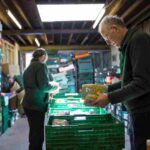Content warning: this article discusses child grooming and child sexual abuse
Experts are preparing for a spike in public reports of child sexual abuse online as UK schools close during the coronavirus (COVID-19) pandemic.
The Internet Watch Foundation (IWF) is concerned children might be at greater risk of being groomed or coerced into making explicit content. Given that many will undoubtedly spend more time online while schools are closed, this puts them at greater risk.
“Ruthless predators”
IWF’s chief executive Susie Hargreaves said increasingly the children themselves are taking photos and videos. “Ruthless predators” target these children under false identities. She went on to say:
Heartbreakingly, we see more and more of this material being filmed by children themselves on devices, sometimes livestreamed from their own bedrooms in the family home…
My fear is that, with more young children being sent home from school, more of them will be spending a lot longer online, possibly exposing them to some of these criminals
“Unprecedented numbers”
IWF is responsible for finding and removing videos and images of children suffering sexual abuse from the internet. In 2019, it looked into a record of 260,400 reports, up from 229,328 the year before.
The charity says its hotline will continue to run while the pandemic forces other staff members to work from home. “We are bracing ourselves for a spike in reports,” Hargreaves said, going on to add:
The pandemic is forcing more and more people to stay indoors, and a lot of people are going to be spending much more time on the internet and at home on electronic devices.
More people alone in their homes, and more people spending longer online sadly means we are likely to see more people stumbling across criminal material involving child sexual abuse on the internet.
We are also expecting criminals to be more active on the internet during the coming months.
This could mean we’ll see an unprecedented number of public reports to our hotline as more people spot things that are not right and report it to us.
The charity urges parents to trust their children but have a frank conversation with them about the dangers.

















